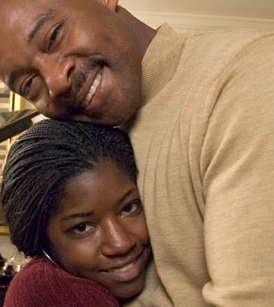
“It can be useful to have your teen rate her depression each day… It’s important for her to visually see that it is improving.”
If your teen is severely depressed, they may not want to do anything besides lie in bed and stare at the wall. It is ironic that the things that will most help us are often the things we least want to do. Exercise is a wonderful antidote for depression, as is sunshine, but the depressed person wants nothing to do with either. Negotiate with your teen. Say that if they’ll go for a twenty-minute walk in the morning and a brief outing in the afternoon,they can lie in bed for an hour each morning and afternoon. When they return from these walks, simply say, “You did well to get out there and walk.” It takes a long time for exercise to produce benefits.Your teen will need a tremendous amount of encouragement during these early days of recovery.
Afternoon outings may be equally difficult for the depressed patient, so take it easy. A visit to the psychiatrist suffices, as does a visit to the therapist.The therapist may keep your teen for only 30 minutes or so. Now is not the time to worry about getting your money’s worth.Therapy can be exhausting for the severely depressed person and it does no good to push them past a tolerable limit. You may need to go into the therapy session with your teen for the first few minutes to get the discussion started since they may not be able to start on their own.
If your teen does not want to go out of the house, offer three choices. Give them some time to think about it. They are not good at making decisions right now. Keep the outing brief and close to home since they will tire easily. Remember, too, that if they’re getting used to new medicine, they will not have their usual stamina. They may also get dehydrated or overheated, or they may experience minor side effects they do not think to mention such as constipation or dry mouth.
Do not bring up any stressful subjects, such as upcoming exams. Dole out their homework in small chunks. Avoid topics about the future that may overwhelm them. The phrase “one day at a time” will come in handy here.
While you’re waiting for your child to respond to treatment, observe their carriage. Do they walk with a slump? Do their eyes look hollow? Do they seem confused? Write your observations down in their medicine log. After they are well, you may forget these important physical characteristics, and they are important forecasts of relapse.
I once heard a psychiatrist say that he often noticed his patients begin to look better two weeks before they begin to feel better. He didn’t tell them this, but he did make note of it when they looked improved. One day, about three weeks after my son had started on a new medicine, I noticed that his face seemed brighter and his eyes looked less strained. I followed the doctor’s lead and kept my observations to myself, not wanting to irritate him when I knew he didn’t feel any better. But my pulse quickened with hope. Sure enough, two weeks later, he admitted that he was feeling better. The week after that, he was even better, and the week after that, better yet. It continued until he was well. It will happen for your child too. So keep watching and encouraging.
Meanwhile, it can be useful to have your teen rate their depression each day. I can almost promise you that they will not want to do this, but you can do it for them. At the end of each day, ask them to rate their depression on a scale of 0 to 5. Record the number. The reason for this is that depression is insidious. It creeps up slowly and retreats just as slowly. Often, the patient insists that they are still depressed when the illness has actually subsided.
Sometimes the news of recovery isn’t welcome. Many people come to identify with the illness if they’ve been depressed for a long stretch of time. They may hate it, but they may also feel that once it is gone, nothing of themselves will be left. As paradoxical as it may sound, recovery can be the hardest part of the healing process. For more on this, see Factors That Can Delay a Teen’s Emotional Recovery.
 “Help your teen track the frequency of a breakthrough symptom so that the psychiatrist can determine if things are worsening or remaining steady.”
“Help your teen track the frequency of a breakthrough symptom so that the psychiatrist can determine if things are worsening or remaining steady.” “It can be useful to have your teen rate her depression each day… It’s important for her to visually see that it is improving.”
“It can be useful to have your teen rate her depression each day… It’s important for her to visually see that it is improving.”